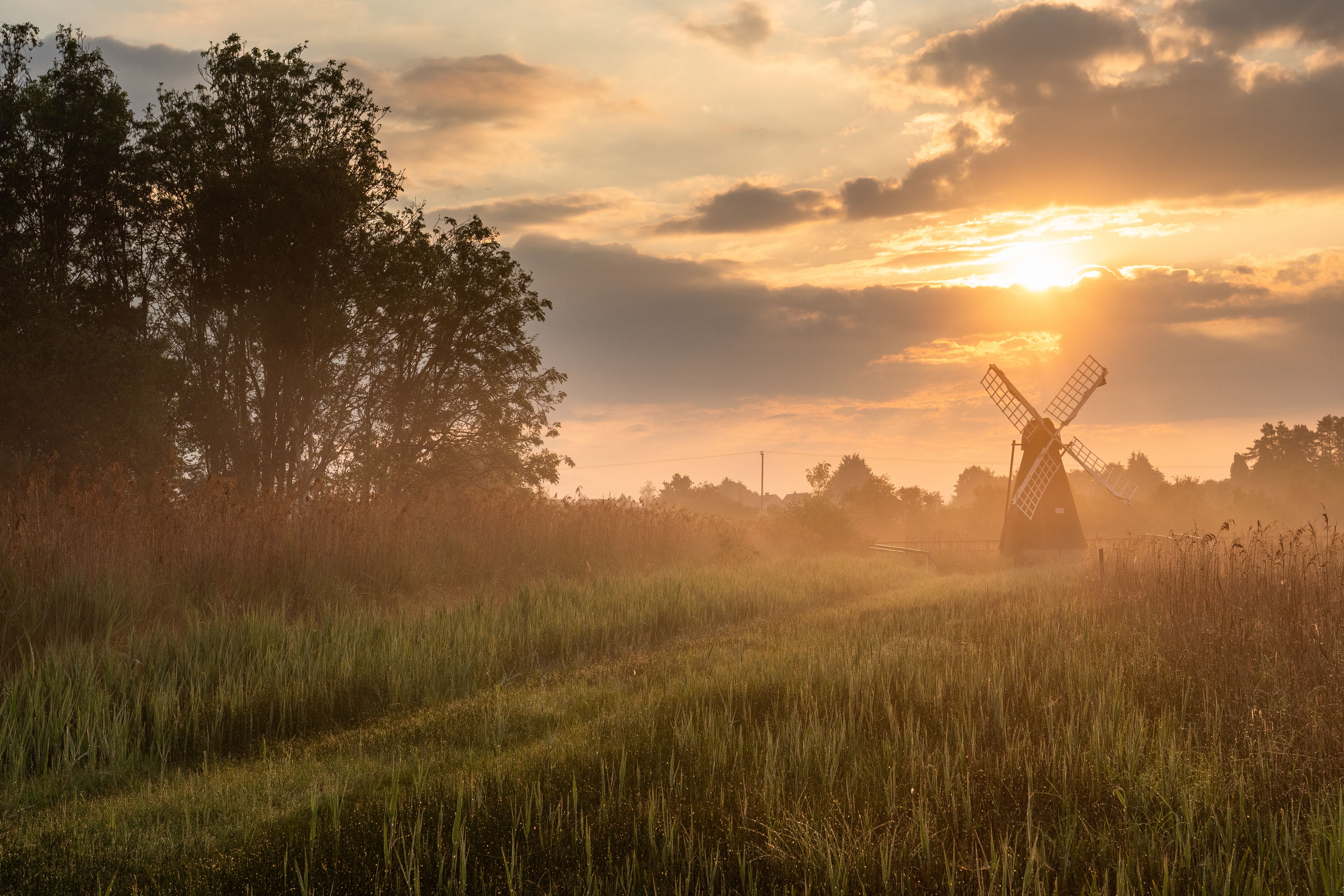Taps turned on at nature reserve to create winter wetland habitat for birds
Conservationists opened taps at the site in Cambridgeshire to divert water to provide a habitat for wildfowl.

Rangers at a nature reserve in the Cambridgeshire Fens have turned on taps across the site to create a winter wetland habitat for wildfowl on the low-lying land.
The taps at Wicken Fen allow water to flow from lodes on higher ground to the lower areas, leaving standing pools to attract birds, and helping to lock in carbon by flooding the peat soil.
The wetland conditions will help attract wildfowl including wigeon, teal, shoveler, gadwall, geese, egrets and sometimes whooper swans to the National Trust site.
The reserve was the first to be bought by the conservation charity, with two acres bought in 1899, and since expanding to more than 2,000 acres after more acquisitions.
Roosting on water overnight helps them feel protected from potential predators, for example foxes, that are potentially put off by having to wade through water
Ajay Tegala, ranger at the National Trust’s Wicken Fen, said: “We have six taps which we turn on using a metre-long metal key, allowing water to flow through a pipe onto the fens.
“Because the lodes are higher than the surrounding ground, gravity enables the water to flow without having to resort to pumping.
“There is immediate visual impact as water rushes through and swells up, forming a sort of miniature fountain.
“Then, water can be seen flowing.
“A couple of days later, the spectacle continues when the standing water starts to attract a huge variety of wildfowl who find food and safety in these wetland areas.
“Roosting on water overnight helps them feel protected from potential predators, for example foxes, that are potentially put off by having to wade through water.
“A flowing river could wash birds away while they rest overnight, but the shallow depth of water on the Fen means that its relatively still, creating an ideal habitat.”
Turning on the taps for winter also helps to restore rare fenland habitat that was lost due to agriculture-related drainage centuries ago.
To date, more than 9,300 species, including an array of plants, birds and dragonflies have been recorded at Wicken Fen, making it one of the most species-rich places in the UK.
The National Trust said that weather extremes, such as the heatwave and drought last summer, have added strain on the recovering peatlands.
Alan Kell, Countryside Manager for the National Trust at Wicken Fen, said: “The abstraction we create by turning the taps is a great way to create fantastic winter wetland habitats, protect our peat soils and help them lock up carbon.
“Unfortunately, it’s a technique we can only employ during the winter months as there is insufficient water in the summer months.
“We know that Wicken Fen has a big role to play for climate action, but without sufficient water, it can quickly go from a fantastic carbon sink to a terrible carbon source.
“With droughts anticipated to become more frequent, combined with the pressures of continued development and its associated water use, the availability of water is, and will continue to be, one of the biggest challenges to this site.”
Subscribe to Independent Premium to bookmark this article
Want to bookmark your favourite articles and stories to read or reference later? Start your Independent Premium subscription today.
